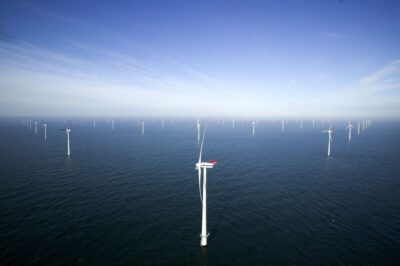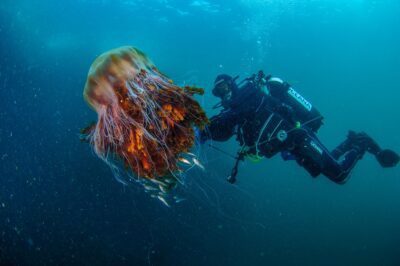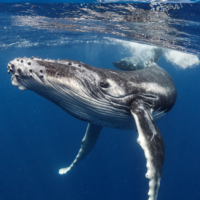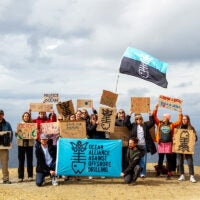End new offshore oil and gas
We need a fair transition to renewable energy to protect marine life, enhance energy security and create stable jobs.
SHARE TO SHOW YOUR SUPPORT:
Overview
As well as driving the climate crisis, oil and gas developments have a deeply destructive impact on UK sea life. We need a fair transition to renewable energy to protect marine life, enhance energy security, and create stable jobs.
The solutions are here
To protect our ocean and stabilise our climate we must end drilling for oil and gas. To lower bills and improve energy security we need a just transition to renewables that can provide low-cost energy and long-term jobs.

This will also help prevent hostile regimes from using oil and gas supplies as an economic weapon.
The UK is has an enviable abundance of opportunities for generating renewable energy, and while the EU, China and the US are rapidly gearing up their capacities in green technology, there is still a clear chance for the UK to be a world leader.
Any new fossil fuel extraction will exacerbate the destructive impacts of the climate crisis that we are already suffering. Extreme flooding, heatwaves and sea-level rise are increasingly putting citizens across the UK at risk.
In the ocean, rising temperatures and acidification are affecting marine ecosystems and fish populations in a multitude of ways, pushing some species to the edge of their resilience.
Direct damage
Offshore oil and gas exploitation also has immediate repercussions for sea life. Alongside catastrophic large oil spills, smaller, routine spillages from these developments can, and do, pollute the UK’s seas on a daily basis. Whales, dolphins and seabirds – including some of Britain’s most endangered species and habitats – are subject to a constant flow of this ‘chronic oiling’.
Exploration, drilling, and decommissioning of oil and gas infrastructure also lead to the release of a variety of pollutants. Toxic chemicals, including the neurotoxin mercury, cause extreme harm or even death to marine creatures.
Microplastics released as part of the extraction process are ingested by animals up and down the food chain. Over 100 tonnes of microplastics were released into the North Sea by oil and gas operations in 2016 alone, estimates suggest.
In addition, seismic airgun surveys – which are used almost exclusively in offshore oil and gas exploration – emit an ear-splitting noise that is 100,000 times more intense than a jet engine.
These blasts, which affect seals, dolphins, commercially important fish species and other wildlife, can cause disruption of mating and feeding and even strandings and death.
The UK’s seafloor is also home to some extraordinarily rare and diverse habitats, such as deep sea sponge communities and cold water corals. These habitats, which would be destroyed or severely damaged by oil and gas exploration and extraction, are critical to the healthy functioning of marine ecosystems and provide vital fish spawning grounds.
At present, 352 of the nearly 900 locations being offered for licensing overlap with Marine Protected Areas, which makes a mockery of the concept of MPAs at its most basic level, and undermines efforts being made to make these sites genuinely of benefit to marine conservation.
Livelihoods at risk
All this is devastating for our seas, but also for the communities who depend on them. From fishers and tourism operators to sailors, divers, surfers, and wildlife enthusiasts – our connection with, and reliance on the ocean is often understated.

But the UK public has not forgotten: three quarters of people in the UK are opposed to oil and gas developments in protected areas of the sea, polling has shown.
Ultimately, more oil and gas will only lock us into a declining and damaging industry. We must invest in our ocean and our future.
News & Reports
Press Releases
Blog

June 24, 2024

June 7, 2024


